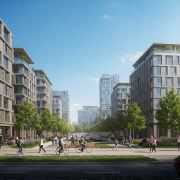 The health and well-being of metropolitan populations all over depend much on air pollution. Cities are using different approaches more and more to solve this problem and raise the air quality for their citizens.
The health and well-being of metropolitan populations all over depend much on air pollution. Cities are using different approaches more and more to solve this problem and raise the air quality for their citizens.
Minimizing Business and Industrial Emissions
Cities are also concentrating on controlling corporate and manufacturing sector emissions. This usually entails enforcing more stringent environmental rules, calling for the construction of cutting-edge pollution control systems, and rewarding the acceptance of better energy sources and manufacturing techniques.
Putting Money Toward Green Infrastructure
Improving air quality depends much on adding green areas into metropolitan settings. Establishing parks and trees helps to release oxygen and aids in absorbing air pollution. Furthermore, vegetation can help to lower urban temperatures, therefore lowering the need for air conditioning with great energy consumption.
Teaching and Invigorating the Public
Crucially, public knowledge of the reasons and consequences of air pollution needs to be raised. Cities are running educational initiatives to teach their citizens about environmentally friendly living and inspire personal behavior meant to lower their impact. This can include advocating regulations meant to improve air quality, selecting greener transportation choices, and encouraging energy economy at home.
Teamwork and Innovation
Good air pollution control sometimes calls for cooperation among local governments, companies, research facilities, and citizens. Long-term changes in air quality depend on encouraging creativity in sustainable urban design and clean technologies, therefore opening the path for better and more breathable cities.



